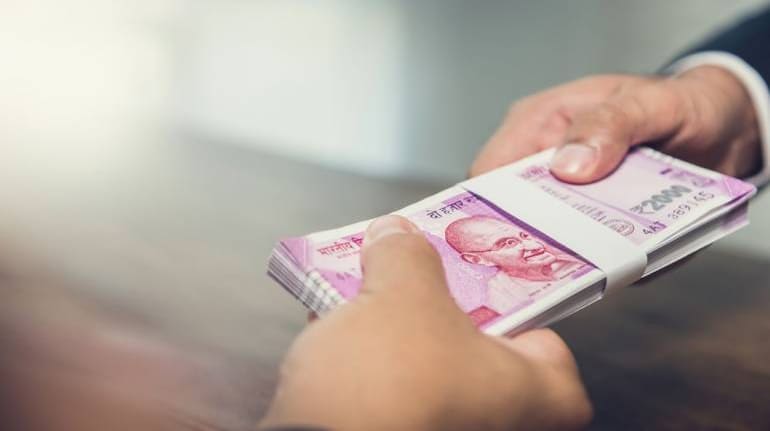Internationalising INR: Local currency swap deals with trade partners can provide a boost
Capital account convertibility is neither a necessary nor a sufficient condition for the success of a country’s currency internationalisation process
July 24, 2023 / 11:42 IST
Internationalisation of the INR at the initial stage has to focus on denominating and settling cross-border trade and financial transactions in rupees.
No matter how well articulated the logic is, central bankers always have a tinge of conservativeness; the recently released Inter-Departmental Group (IDG) report of RBI on the internationalisation of the Indian rupee (INR) is no exception. The developments in the currency front cannot be studied in isolation, these are interlinked with the progress of the external sector and the composition of GDP growth. Over the last three decades not only our trade linkages with the world have increased, funds flow has gone up too. On the currency front, there are mixed signals, as a reserve currency the dominance of US dollars is on the wane. Yet, the dollar’s share in foreign exchange turnover as indicated by Bank for International Settlement (BIS) Triennial Central Bank Survey was 88 percent in 2022. There are clear signs that in a multipolar world, other countries have a role to play too.Dealing With Financial FlowsInternationalisation of the INR at the initial stage has to focus on denominating and settling cross-border trade and financial transactions in rupees. At this stage, it is useful to note that trade presents one part of the story; to complete the story one has to take into consideration the burgeoning financial flows. Current account convertibility would allow us to handle the trade issues. However, these days many of the transactions are purely financial dealings, which are not connected to trade. As the complexity of financial flows increases, the issue of capital account convertibility would require more attention.Internationalisation of currencies of emerging countries like that of India and China has three components, firstly, there has to be invoicing in domestic currency along with trade and settlement. Secondly, there is a need to focus on capital account convertibility and thirdly, one can explore the scope of entry to special drawing rights (SDR) basket. This can allow the currency to become a part of the reserve currency of other countries' central banks. The third objective is a long-term one.Boost From TradeThe increasing acceptability of a currency is also closely linked to the home country’s progress in international trade. The growing demand for yuan internationally is closely linked to the growth of China’s manufacturing exports. For India too, exports of goods and services can play an important role, particularly in the context of bilateral and multilateral trade arrangements in local currency. Acceptance of the INR as settlement currency by the Asian Clearing Union is indeed welcome. China’s experience in this area is noteworthy, between 2009 and 2020 China opened swap lines with 41 countries. The total amount exceeded RMB 3.5 trillion which was equivalent to $554 billion. They have a similar swap line with Russia which is more than $600 billion. The primary purpose is to enhance investment and trade with bilateral partners and reduce their dependence on the dollar and increase the acceptance of the yuan. These countries include South Korea, Singapore, Malaysia, Indonesia and Thailand.In a similar manner, local currency swap arrangements would provide liquidity to our trading partners for the purchase of Indian goods and services. There is also a need to further liberalise Indian government securities, corporate and sovereign bond markets for countries like the United Arab Emirates and Russia. The sudden fillip for the rupee trade in 2022 and 2023 came from the Russian offer of discounted crude on account of sanctions. The trade deficit with Russia is now $36 billion. The question to ask is if these discounts disappear due to the withdrawal of discounted crude offers or some other reason, then what will happen to the rupee trade? In other words, the rupee trade cannot be an outlier. We need to have a clear strategy for enhancing rupee trade with a number of countries including our neighbours.Interestingly, neither India nor China has capital account convertibility, considered a precondition for the internationalisation of a currency. It is even more amazing that the yuan has become a reserve currency though not a safe haven currency without capital account convertibility. Often, we tend to forget that many countries with open capital accounts play very limited roles in international finance. Some examples are Guyana, Jamaica, Paraguay, Peru, Trinidad and Tobago. Relatively poorer developing economies often have an open capital account for attracting capital. Incidentally, Indonesia too has an open capital account, it is a by-product of the capital shortage days. In other words, capital account convertibility is neither a necessary nor a sufficient condition for the success of a country’s currency internationalisation process.Further, many policymakers believe that floating currency goes hand-in-hand with an open capital account, this too is not a necessary condition. Hong Kong has an open capital account but its currency is pegged to the US dollar. When US interest rates started going up, capital outflows forced Hong Kong Interbank Offered Rate to move up, this in its turn had the stock market in a squeeze. All these have some lessons for India — there is no tearing hurry for capital account convertibility. The establishment of domestic macroeconomic stability conditions should precede capital account convertibility.Siddhartha Roy is the former Economic Advisor of the Tata Group. Views are personal, and do not represent the stand of this publication.
Siddhartha Roy is the former Economic Advisor of the Tata Group. Views are personal, and do not represent the stand of this publication.
Discover the latest Business News, Sensex, and Nifty updates. Obtain Personal Finance insights, tax queries, and expert opinions on Moneycontrol or download the Moneycontrol App to stay updated!



